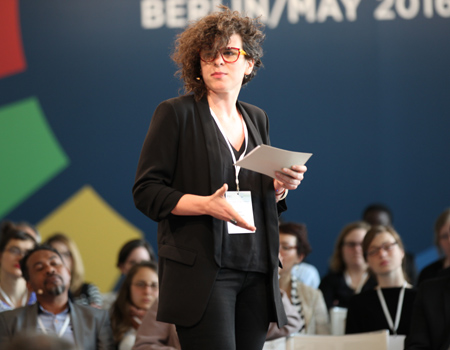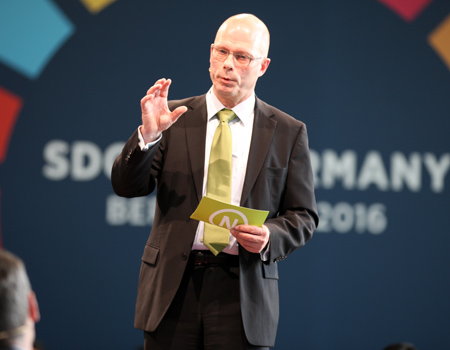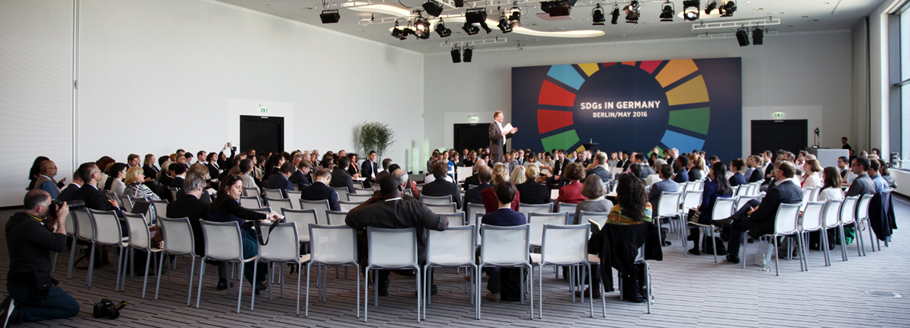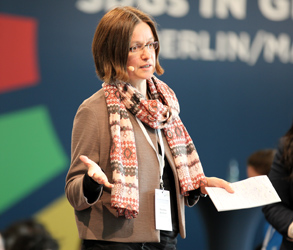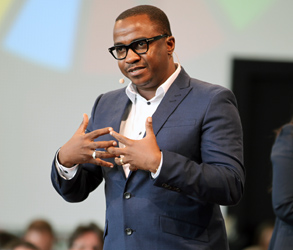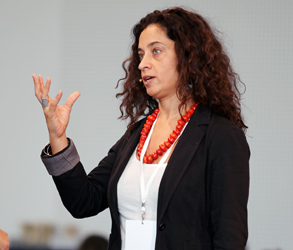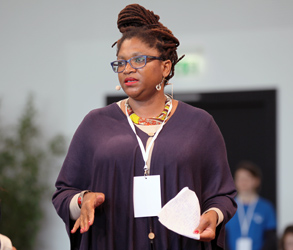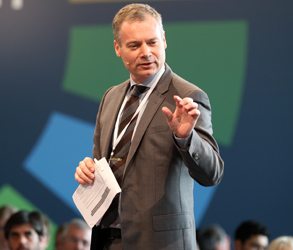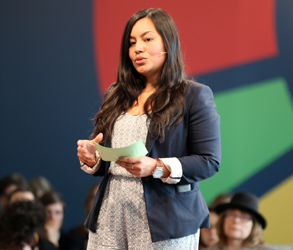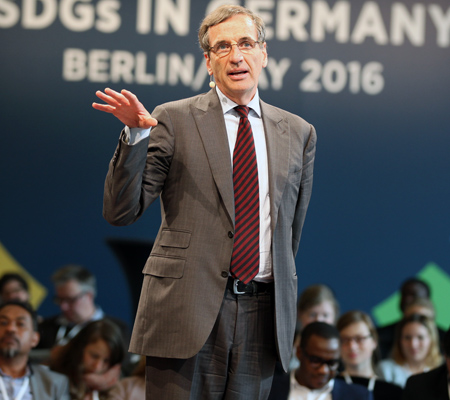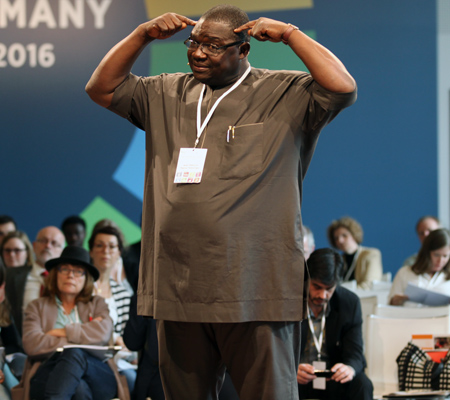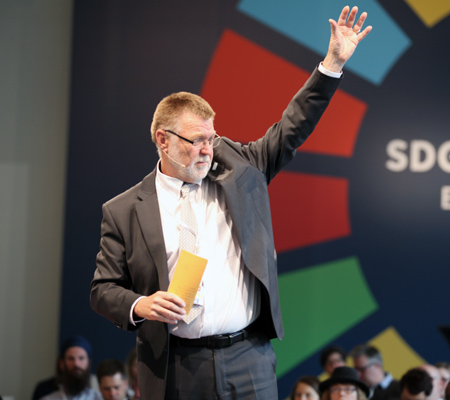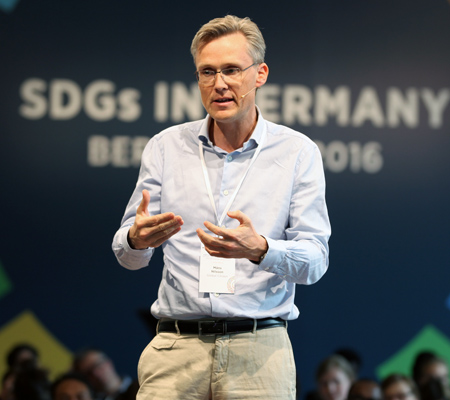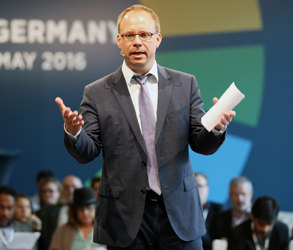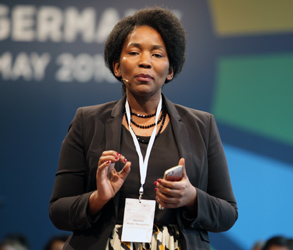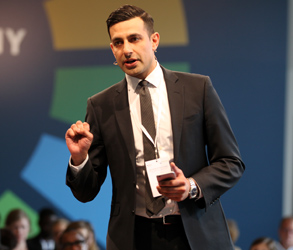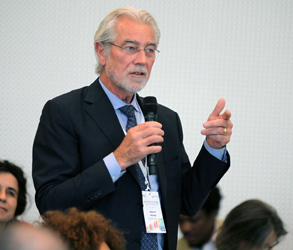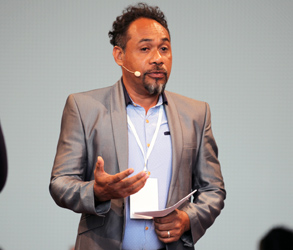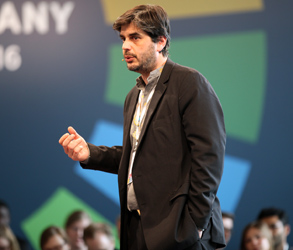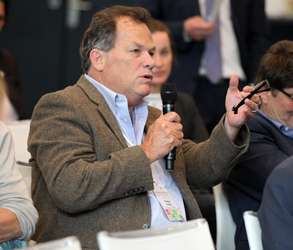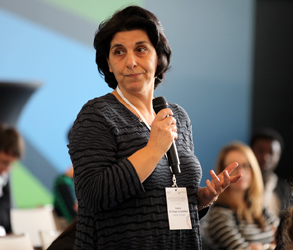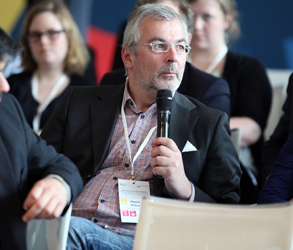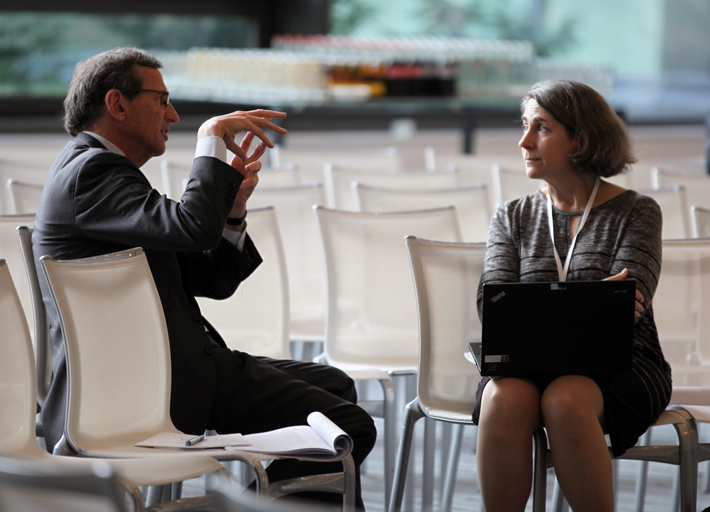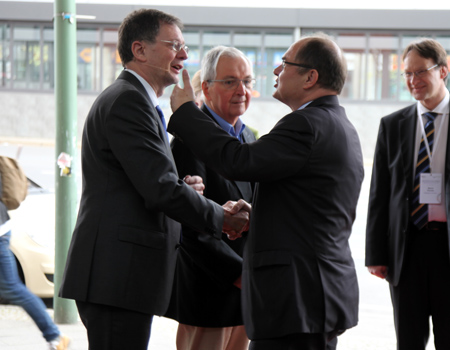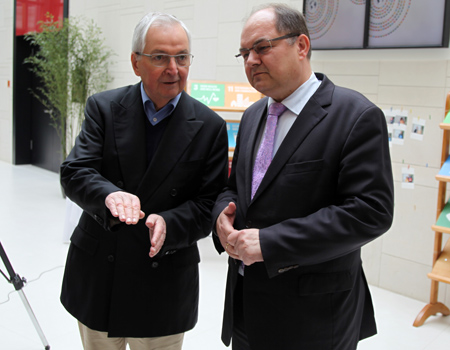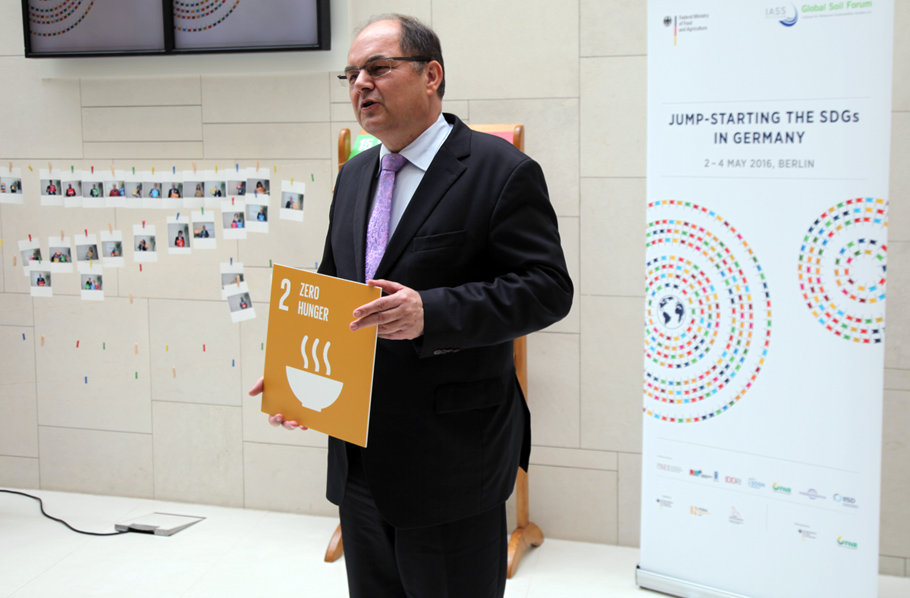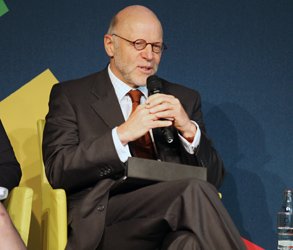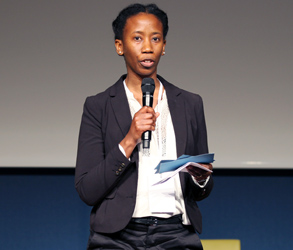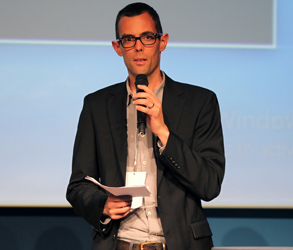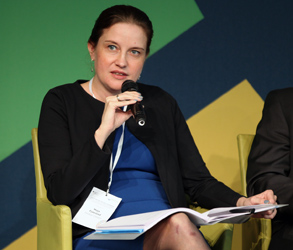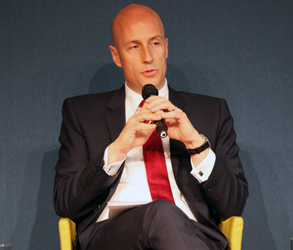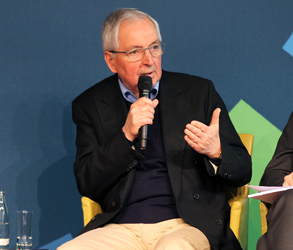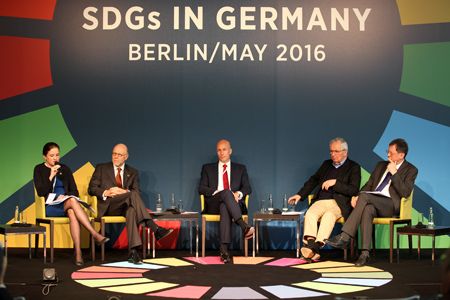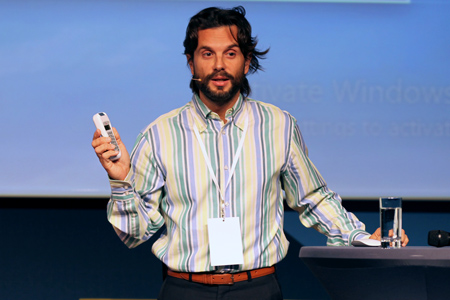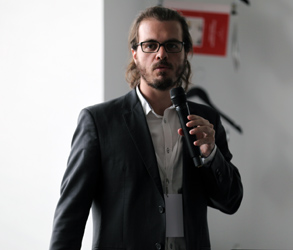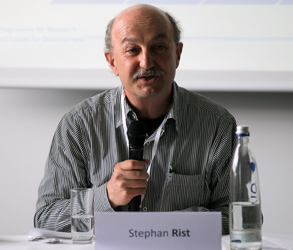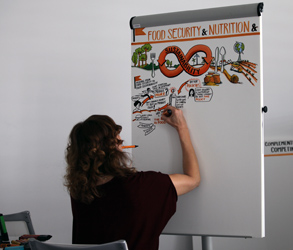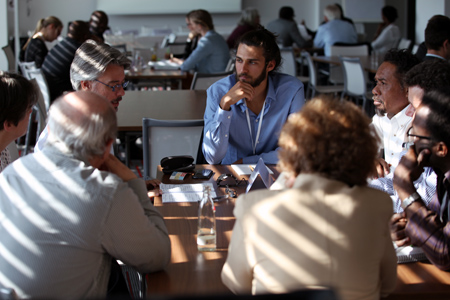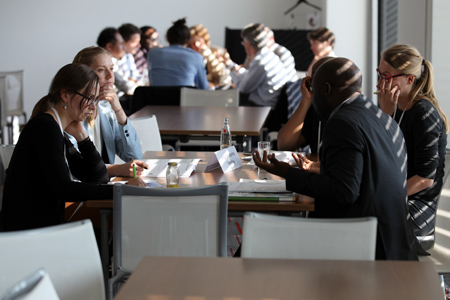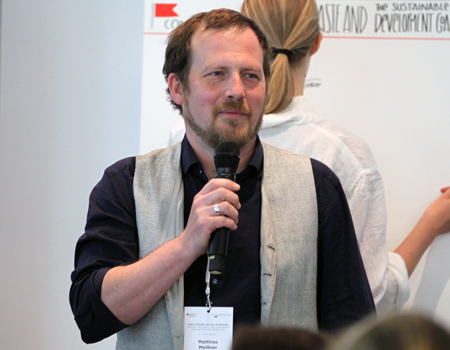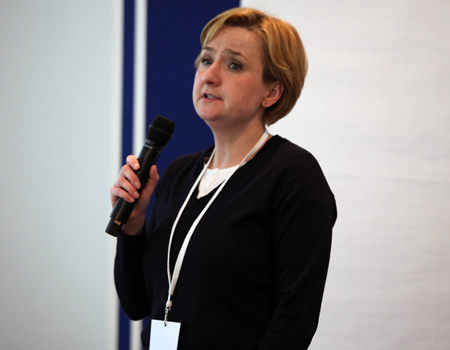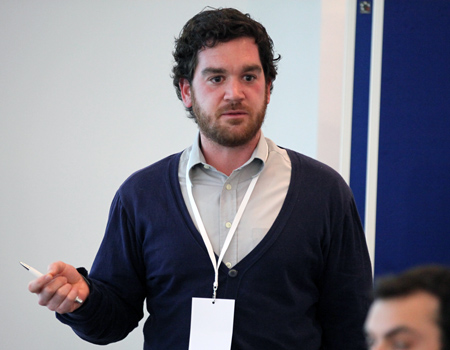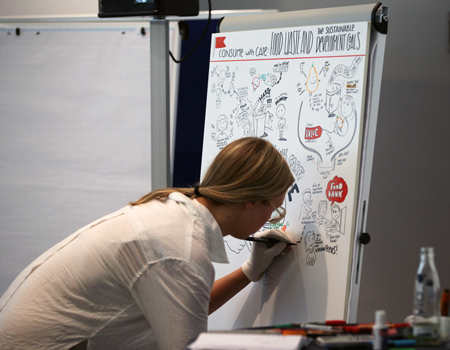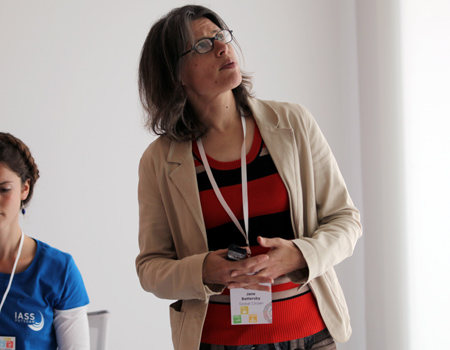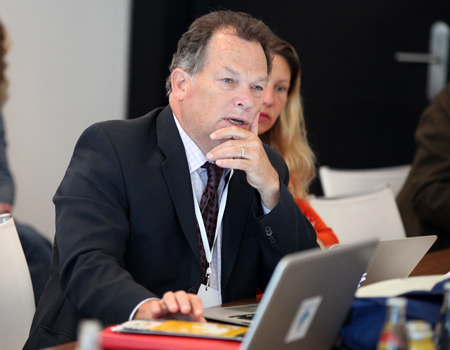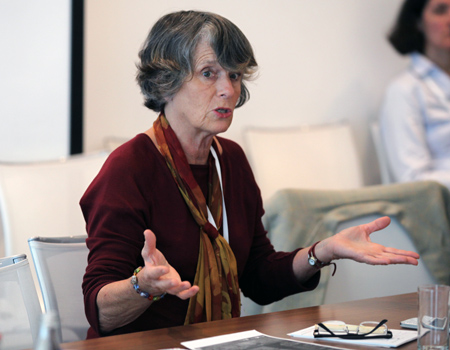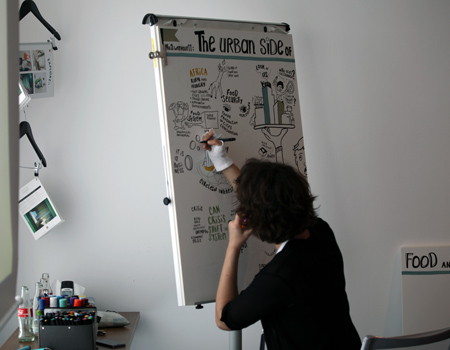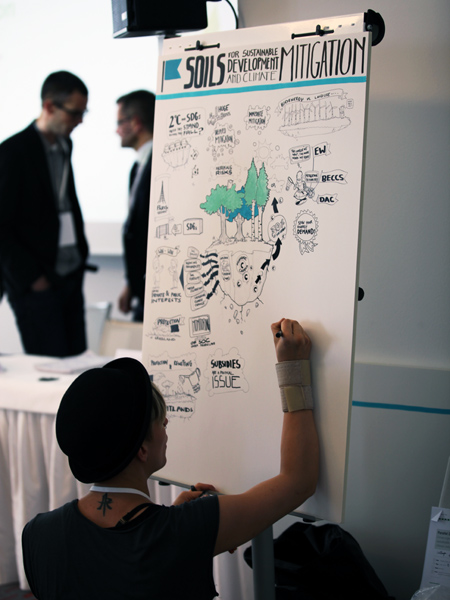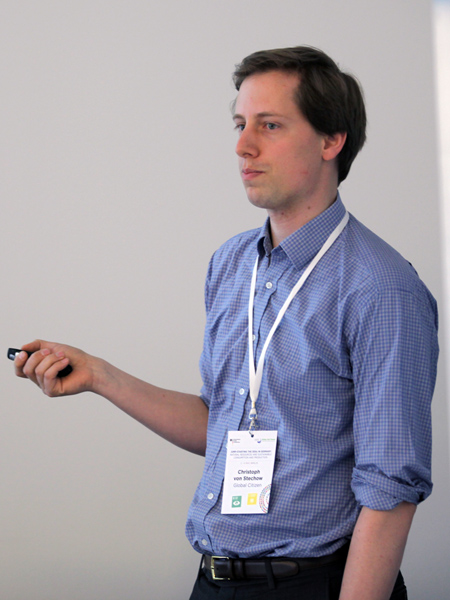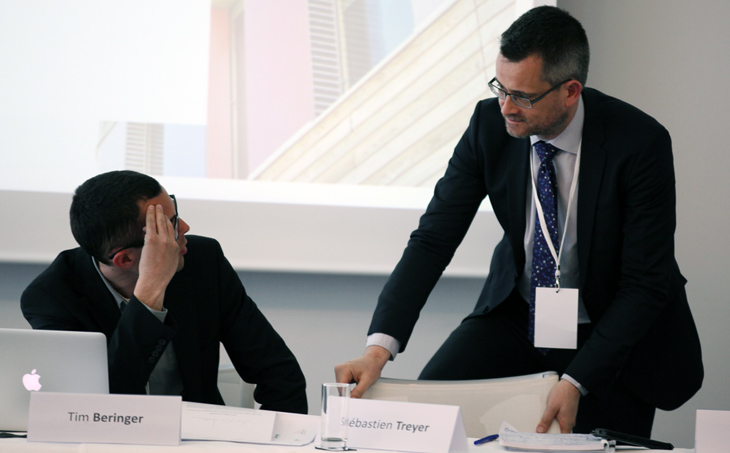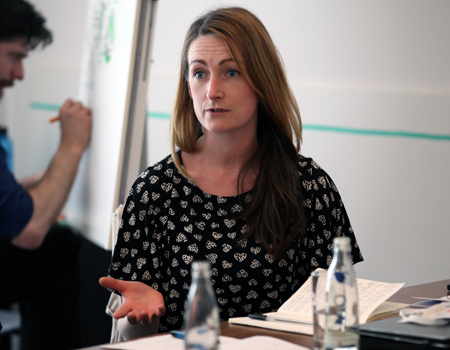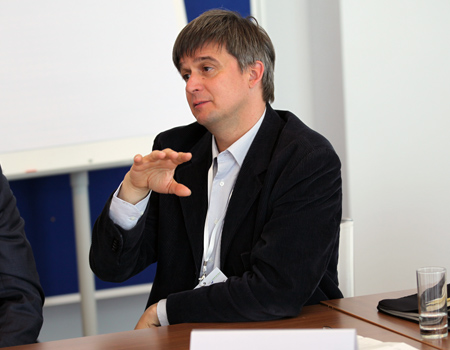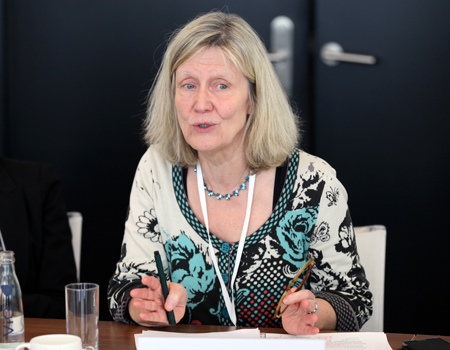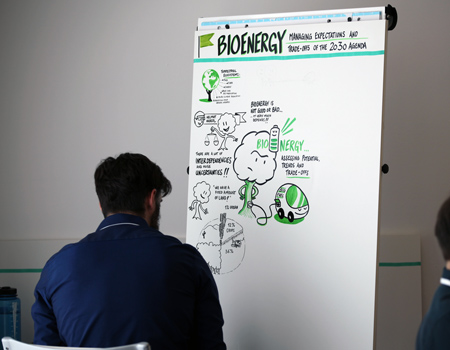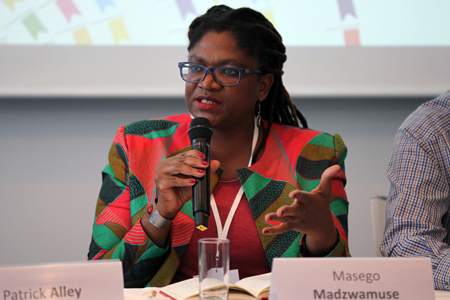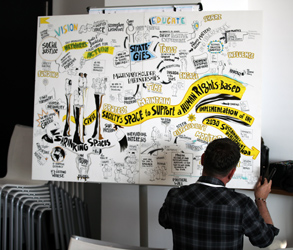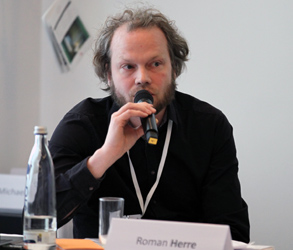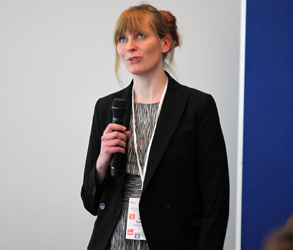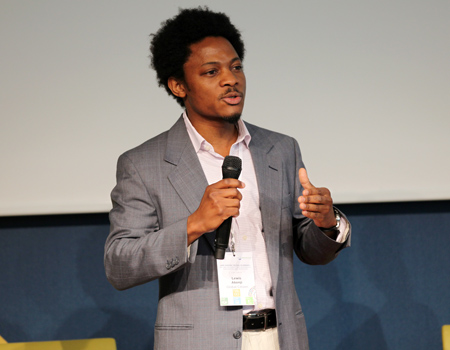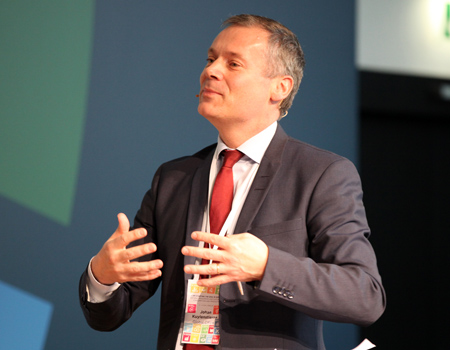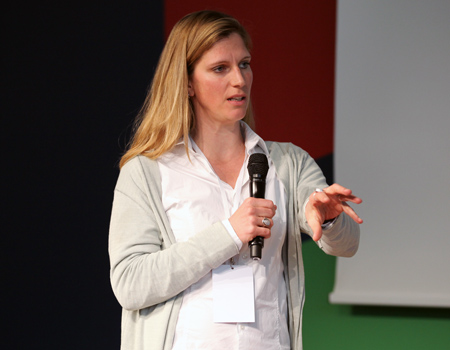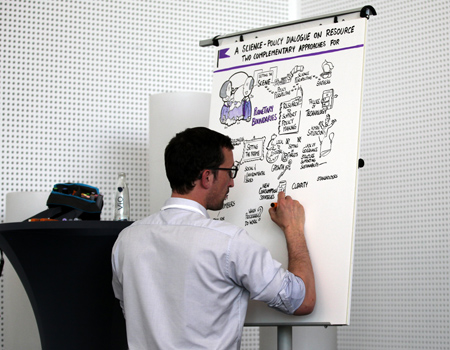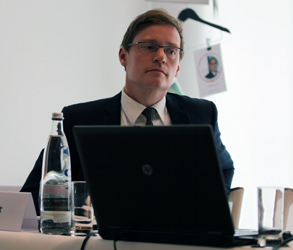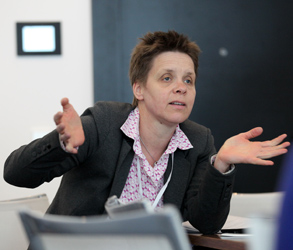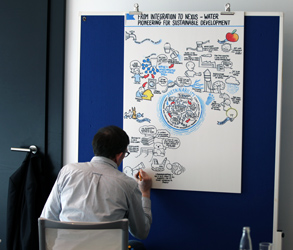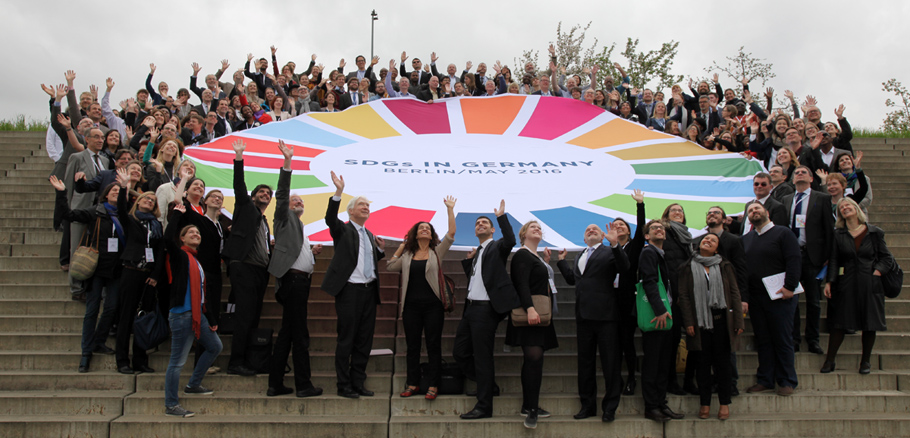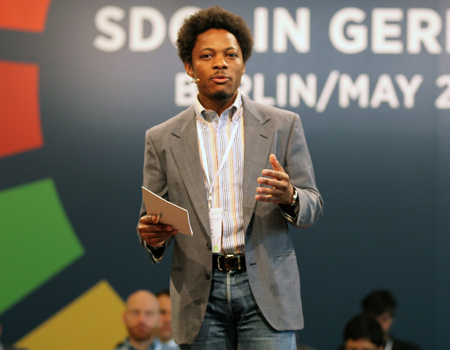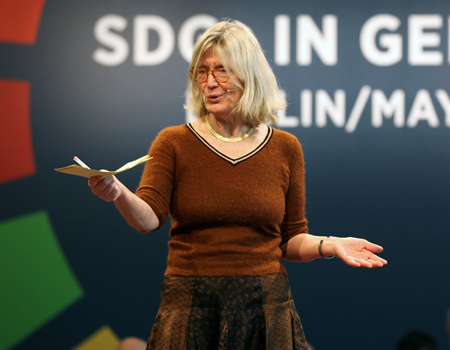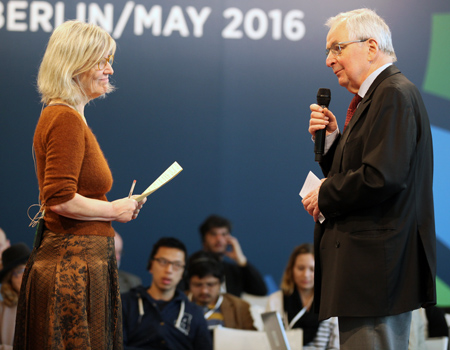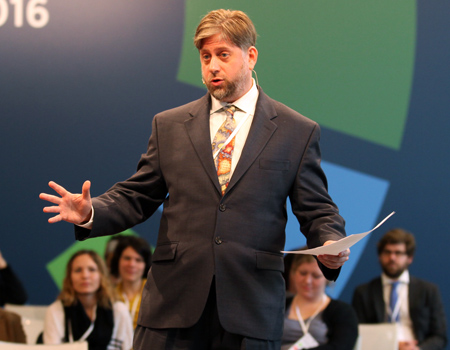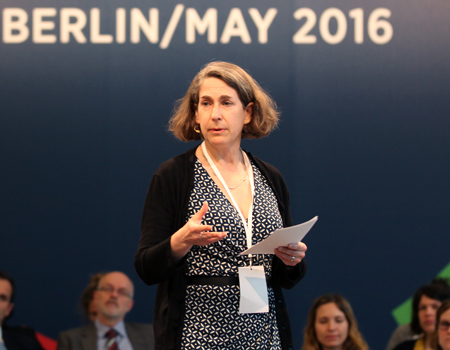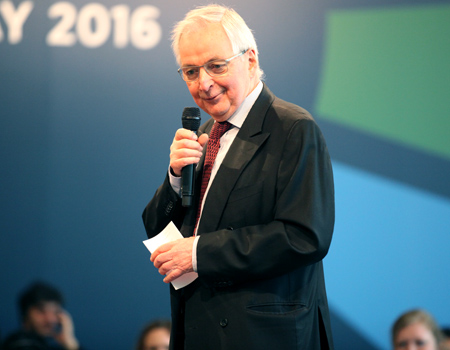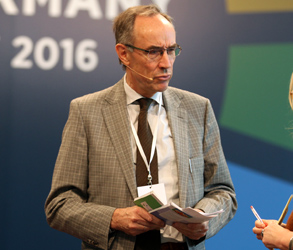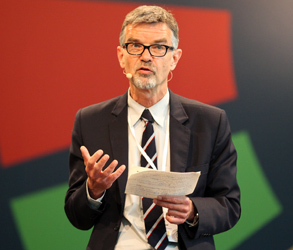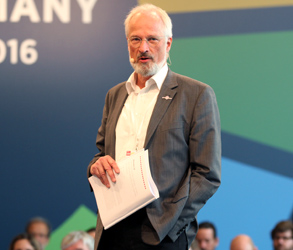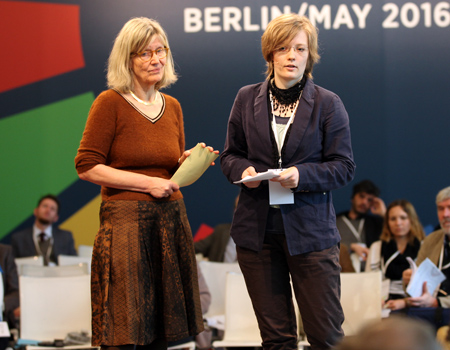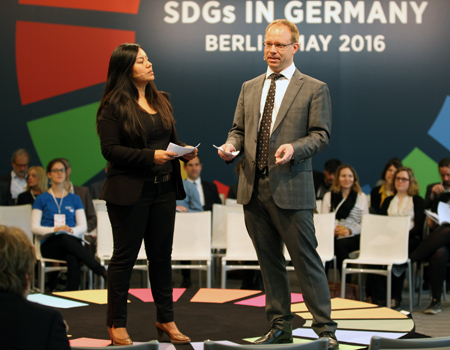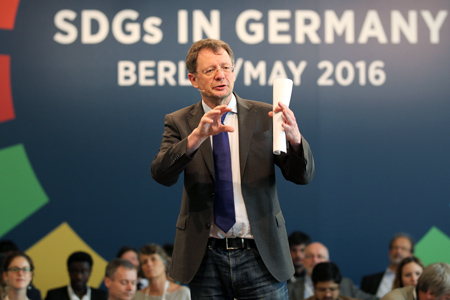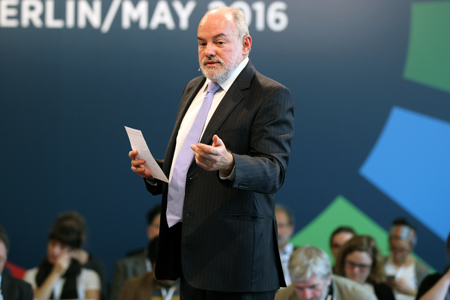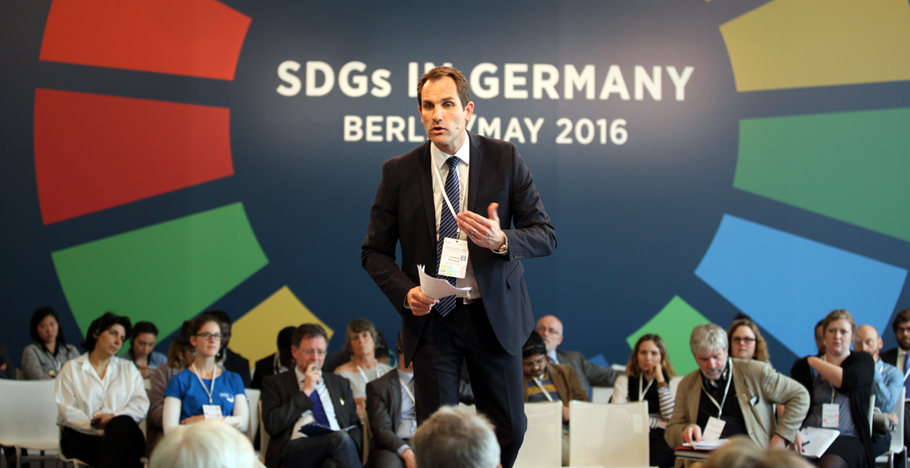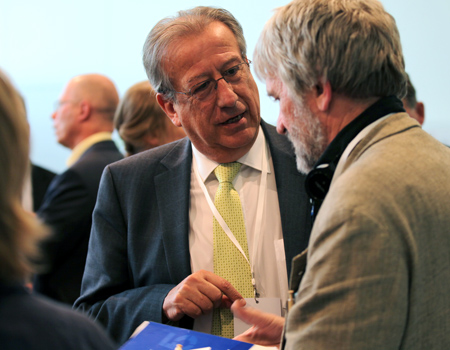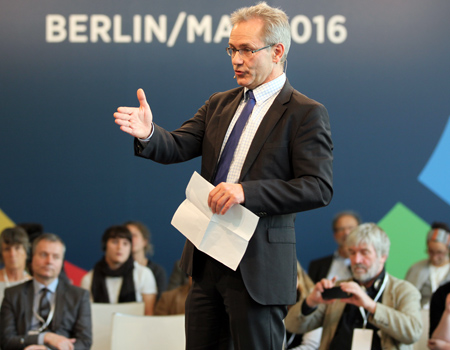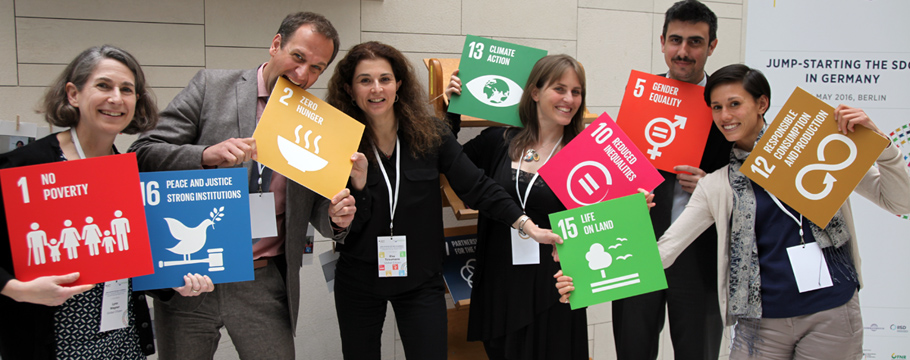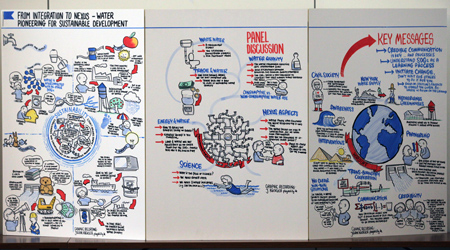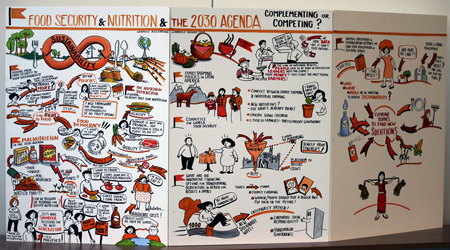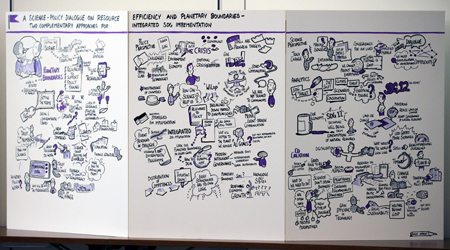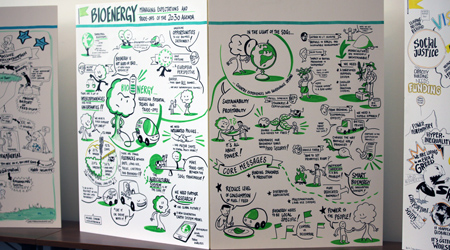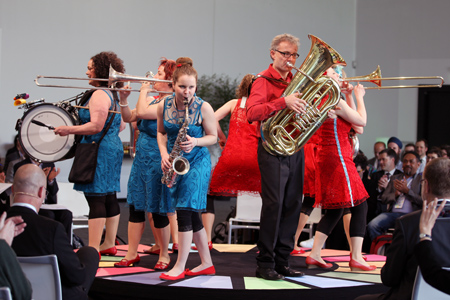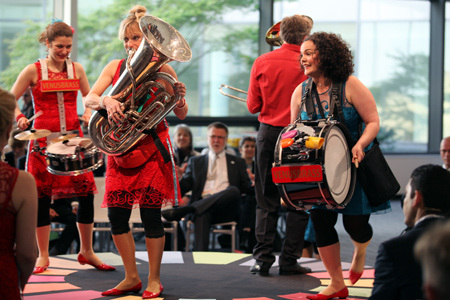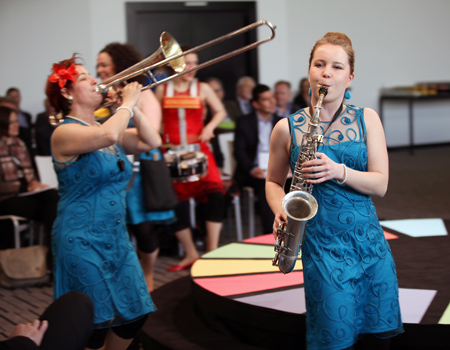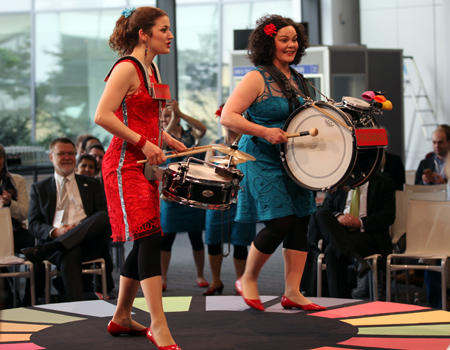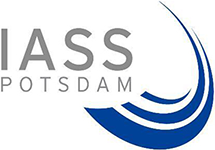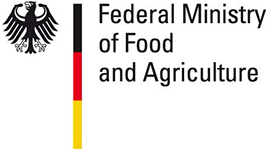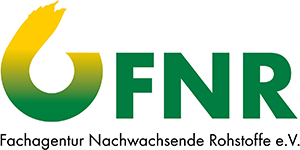Jump-starting the SDGs in Germany:
Natural Resources and Sustainable Consumption and Production
2-4 May 2016 | Berlin, Germany
Summary Highlights of the Meeting
Download ENB+ Meeting Report |
||||||
Receive our ENB+ bulletins and reports by email: |
||||||

| Follow @IISDRS | ||

Loading... |
||
|
Receive emailed updates with the news articles above plus related information and announcements from our SDG community mailing list: |
||
Highlights for Monday, 2 May 2016

Alexander Müller, The Economics of Ecosystems and Biodiversity (TEEB) for Agriculture and Food, and German Council for Sustainable Development (RNE), Germany |
||
|
The Conference “Jump-starting the SDGs in Germany: Natural Resources and Sustainable Consumption and Production” opened on Monday afternoon, 2 May 2016, at Andel’s Hotel, in Berlin, Germany. The meeting will address the challenges of implementing the Sustainable Development Goals (SDGs), focusing on natural resources and sustainable consumption and production patterns. |
||
|
IISD Reporting Services, through its ENB+ Meeting Coverage, provided daily web coverage and a summary report from the Conference: Jump-starting the SDGs in Germany. Our report is available in HTML or PDF format. | ||
|
|
|
|
|
|
|
|
|
|
|
|
|
|
|
|
|
|
|
|
Highlights for Tuesday, 3 May 2016

Christian Schmidt, Federal Minister of Food and Agriculture, Germany |
||
|
On Tuesday morning, the Conference “Jump-starting the SDGs in Germany: Natural Resources and Sustainable Consumption and Production” opened with a High-level Policy Segment. During panel discussions, Maja Fjaestad, State Secretary for Strategic Development and Nordic Cooperation, Sweden, underscored Sweden’s strong commitment to the implementation of the 2030 Agenda, including the aim to become the “first fossil fuel-free welfare state.” Harald Braun, German Ambassador to the UN, highlighted the importance of immediate action through inclusive, multi-sectoral approaches. In the afternoon, eight dialogue forums were held in parallel discussing natural resources and sustainable consumption and production from a nexus perspective to address the 2030 Agenda. Participants explored the issues of food security and nutrition, climate, energy, land governance, water, and resource efficiency, to address the role of natural resources in achieving the SDGs. In the evening, participants attended the conference dinner at the House of World Cultures. |
||
|
IISD Reporting Services, through its ENB+ Meeting Coverage, provided daily web coverage and a summary report from the Conference: Jump-starting the SDGs in Germany. Our report is available in HTML or PDF format. | ||
|
|
|
|
|
|
|
|
|
|
|
Parallel Dialogue Forum I: Food Security and Nutrition (FSN) and the 2030 Agenda: Complementing or competing?
|
|
|
|
|
Parallel Dialogue Forum II: Consume with care: Food waste and the Sustainable Development Goals
|
|
|
|
Parallel Dialogue Forum III: No 2 without 11: The urban side of food and nutrition security
|
|
|
|
Parallel Dialogue Forum IV: Great expectations - soils for sustainable development and climate mitigation
|
|
|
|
Parallel Dialogue Forum V: Bioenergy: Managing expectations and trade-offs of the 2030 Agenda
|
|
|
|
Parallel Dialogue Forum VI: Civil society’s space to support a human rights-based implementation of the 2030 Sustainable Development Agenda
|
|
|
|
|
Parallel Dialogue Forum VII: A science-policy dialogue on resource efficiency and planetary boundaries - two complementary approaches for integrated SDG implementation
|
|
|
|
Parallel Dialogue Forum VIII: From integration to nexus - Water pioneering for sustainable development
|
|
|
Highlights for Wednesday, 4 May 2016

Johan Kuylenstierna, Stockholm Environment Institute (SEI), with Alexander Müller, The Economics of Ecosystems and Biodiversity (TEEB) for Agriculture and Food, and German Council for Sustainable Development (RNE) |
||
|
On Wednesday morning, Conference participants attending “Jump-starting the SDGs in Germany: Natural Resources and Sustainable Consumption and Production” reviewed lessons from the previous day’s dialogue forums, and discussed implications of the Conference’s outcomes for SDG implementation at the international level and in Germany. Chair Alexander Müller, TEEB for Agriculture and Food and RNE, presented the Conference main messages, including that it is time for governments to act and that industrialized countries need to change for developing countries to start changing. |
||
|
IISD Reporting Services, through its ENB+ Meeting Coverage, provided daily web coverage and a summary report from the Conference: Jump-starting the SDGs in Germany. Our report is available in HTML or PDF format. | ||
|
|
|
|
|
|
|
|
|
|
|
|
|
|
|
|
|
|
Discussion Illustrations
|
|
|
|
VenusBrass band
|
|
|
|
Natural Resources and Sustainable Consumption and Production,” has been provided by IASS Potsdam,
the German Federal Ministry of Food and Agriculture (BMEL) and the Fachagentur Nachwachsende Rohstoffe e.V.
